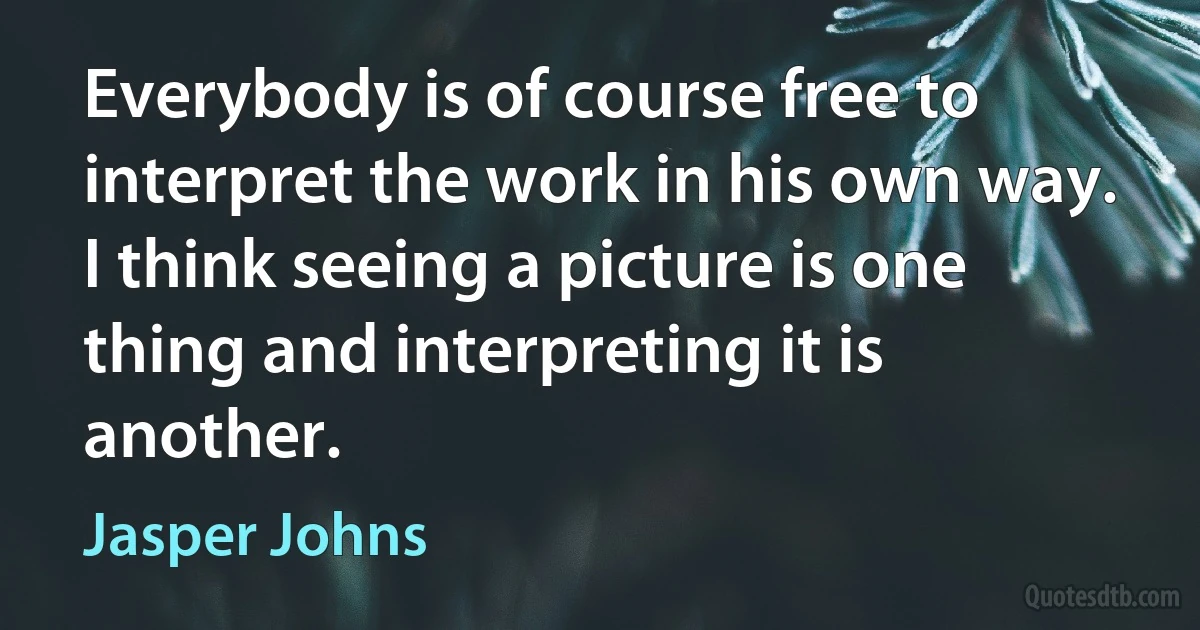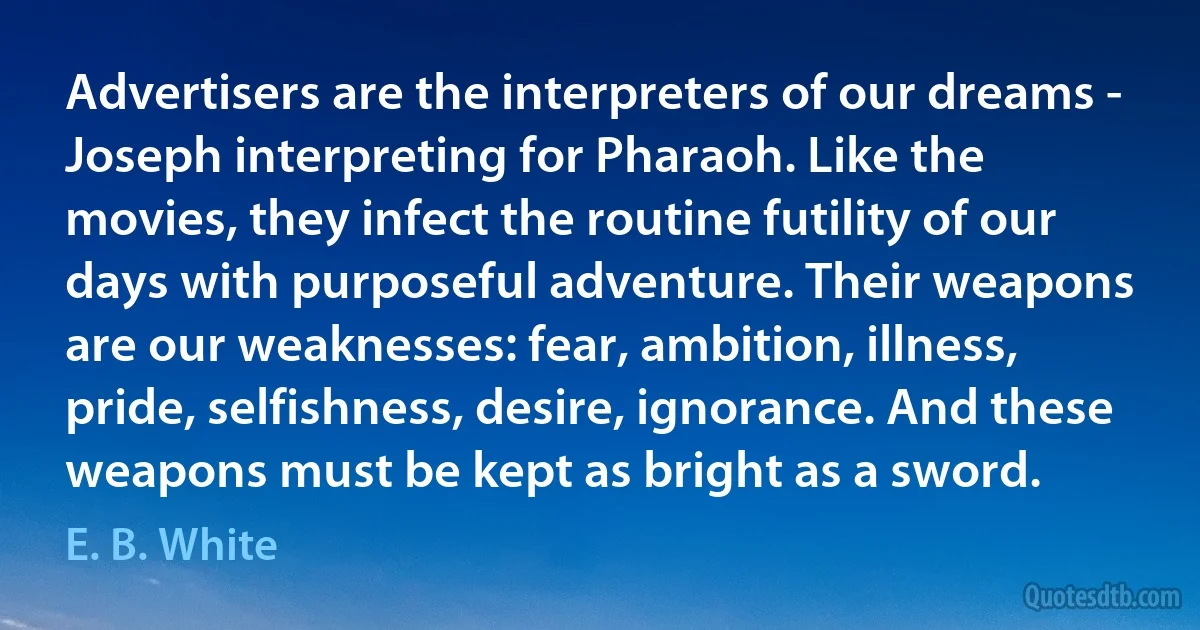Interpreting Quotes
I had long since insisted upon interpreting the things that Fate forced me to do as victories of my own will and intelligence, and now this bad habit had grown into a sort of frenzied arrogance. In the nature of what I was calling my intelligence there was a touch of something illegitimate, a touch of the sham pretender who has been placed on the throne by some freak chance. This dolt of a usurper could not foresee the revenge that would inevitably be wreaked upon his stupid despotism.

Yukio Mishima
The power of our intention and the energy it unleashes are dependent on our levels of coherence and intensity. The affirmation of our positive intentions in thought, feeling and action increases the power of our abilities. Nonetheless, it is important to appreciate that the matrix of physical, emotional, and mental levels of consciousness through which our personal and collective intentions and choices are explored and experienced require a "health warning” on interpreting the Law of Attraction too simplistically.

Ervin László
No religion I ever encountered made any sense. None are consistent. Most gods are megalomaniacs and paranoid psychotics by their worshippers' description. I don't see how they could survive their own insanity. But it's not impossible that human beings are incapable of interpreting a power so much greater than themselves. Maybe religions are twisted and perverted shadows of truth. Maybe there are forces which shape the world. I myself have never understood why, in a universe so vast, a god would care about something so trivial as worship or human destiny.

Glen Cook
In both positivism and Heidegger-at least in his later work-speculation is the target of attack. In both cases the thought that autonomously raises itself above the facts through interpreting them and that cannot be reclaimed by them without leaving a surplus is condemned for being empty and vain concept-mongering.

Theodor Adorno
One rainy day in Cologne on the Rhine, the catalogue of a teaching aids company caught my attention. It was illustrated with models of all kind – mathematical, geometrical, anthropological, zoological, botanical, anatomical, mineralogical, paleontological, and so forth- elements of of such a diverse nature that the absurdity of the collection confused the eye and mind, producing hallucinations and lending the objects depicted new and rapidly changing meanings. I suddenly felt my 'visionary faculties' so intensified that I began seeing the newly emerged objects against a new background. To capture it, a little paint or a few lines were enough, a horizon, a sky, a wooden floor, that sort of things. My hallucination had been fixed. Now it was a matter of interpreting the hallucination in a few words or sentences Such as: 'Above the clouds midnight passes. Above midnight glides the invisible bird of day..

Max Ernst
Picturing things, taking a view, is what makes us human; art is making sense and giving shape to that sense. It is like the religious search for God. We are well aware that making sense and picturing are artificial, like illusion; but we can never give them up. For belief (thinking out and interpreting the present and the future) is our most important characteristic.

Gerhard Richter
People may choose to ignore their animal heritage by interpreting their behavior as divinely inspired, socially purposeful, or even self-serving, all of which they attribute to being human, but they masticate, fornicate, and procreate, much as chimps and apes do, so they should have little cause to get upset if they learn that they act like other primates when they politically agitate, debate, abdicate, placate, and administrate, too.

Arnold M. Ludwig
[ Milton Friedman was] the dominant member of the so-called Chicago school of economics [during his tenure at Chicago]... The economics department increasingly reflected his approach and interests. These included deep commitment to the truth, appreciation of markets and free enterprise, frank and blunt discussion, and enormous zeal to convince the heathen. But most important was the commitment to economic analysis as a powerful instrument for interpreting economic and social life.

Gary Becker
I see those pretended politicians who place all their subtlety, and who think they serve their country best, in circumventing those with whom they treat, interpreting the conditions of a treaty in such a manner, that all the advantage results to their own country. Far from blushing at conduct so contrary to equity, to right, and to national honesty, they boast of their dexterity, and pretend that they deserve the name of great negociators. How long shall public men boast of conduct which would disgrace a private individual? ...Shall powerful states abandon openly that which is honest, for that which may appear useful? It often happens for the happiness of the human race, that this pretended utility is fatal to the powers who follow it, and that, even among sovereigns, candour and right are found to be the safest policy.

Henry Temple, 3rd Viscount Palmerston
By his theory of relativity Albert Einstein has provoked a revolution of thought in physical science. ...Physical space and time are found to be closely bound... with... motion of the observer; and only an amorphous combination of the two is left... It is my aim to give an account of this work without introducing anything very technical in... mathematics, physics, or philosophy. ...[T]he task is one of interpreting a clear-cut theory... although perhaps not everyone would accept the author's views of its meaning.

Arthur Eddington
It is frequently charged that this tribunal is tyrannical. If the Constitution of the United States be tyranny; if the rule that no one shall be convicted of a crime save by a jury of his peers; that no orders of nobility shall be granted; that slavery shall not be permitted to exist in any state or territory; that no one shall be deprived of life, liberty or property without due process of law; if these and many other provisions made by the people be tyranny, then the Supreme Court when it makes decisions in accordance with these principles of our fundamental law is tyrannical. Otherwise it is exercising the power of government for the preservation of liberty. The fact is that the Constitution is the source of our freedom. Maintaining it, interpreting it, and declaring it, are the only methods by which the Constitution can be preserved and our liberties guaranteed.

Calvin Coolidge
The innovator, however, must in the first place be discontented, he must doubt the value of what he is doing or question the accepted ways of doing it. And secondly, he must be prepared to take fresh paths, to venture into fields where he is by no means expert. This is true, at least, of major forms of innovation; they make it possible for other men to be expert, but are not themselves forms of expertise. Freud was not an expert psycho-analyst; before Freud wrote there was no such thing; he created the standards by which psycho-analysts are judged expert. Neither was Marx an expert in interpreting history in economic terms nor Darwin an expert in evolutionary biology. If a man is trained, purely and simply, to be expert and contented in a particular task he will not innovate; Freud would have remained an anatomist, Marx a philosopher, Darwin a field-naturalist.

John Passmore



